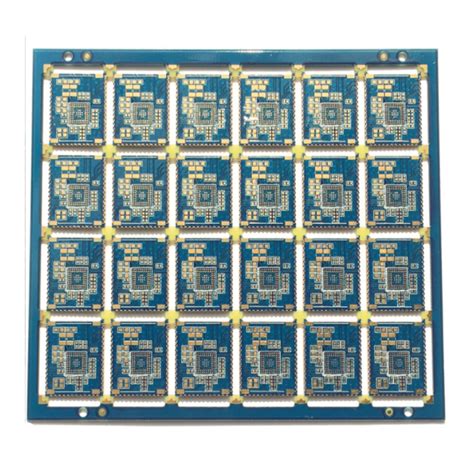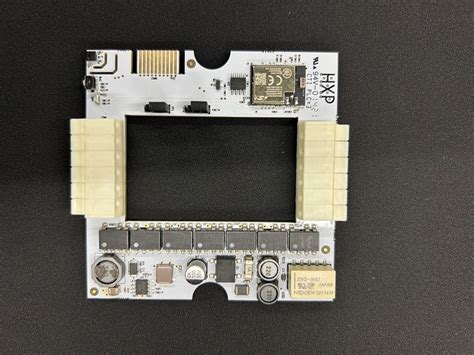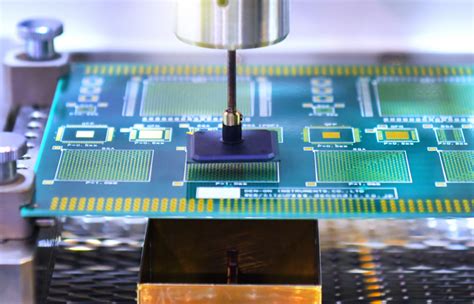Itar pcb assembly
Understanding ITAR Compliance in PCB Assembly
In the realm of printed circuit board (PCB) assembly, compliance with the International Traffic in Arms Regulations (ITAR) is a critical consideration for companies involved in the defense and aerospace sectors. ITAR is a set of United States government regulations that control the export and import of defense-related articles and services. These regulations are designed to ensure that sensitive military technologies do not fall into the hands of foreign adversaries, thereby safeguarding national security. Understanding ITAR compliance in PCB assembly is essential for manufacturers who wish to engage in defense-related projects.
To begin with, ITAR compliance requires that companies register with the U.S.
Department of State’s Directorate of Defense Trade Controls (DDTC). This registration is a prerequisite for any organization that manufactures, exports, or brokers defense articles, including PCBs used in military applications. Once registered, companies must adhere to strict guidelines regarding the handling, documentation, and transfer of ITAR-controlled items. This includes ensuring that all employees involved in the project are U.S. persons, as defined by ITAR, and that they are adequately trained in ITAR compliance procedures.
Moreover, ITAR compliance in PCB assembly involves stringent documentation and record-keeping practices.
Companies must maintain detailed records of all transactions involving ITAR-controlled items, including the transfer of technical data and the movement of physical goods. This documentation is crucial for demonstrating compliance during audits conducted by the DDTC. Failure to maintain accurate records can result in severe penalties, including fines and the loss of export privileges.
In addition to documentation, ITAR compliance necessitates robust security measures to protect sensitive information.
This includes implementing access controls to ensure that only authorized personnel can access ITAR-controlled data and materials. Companies must also establish secure communication channels for the transfer of technical data and employ encryption technologies to safeguard information from unauthorized access. These security measures are vital for preventing data breaches that could compromise national security.
Furthermore, ITAR compliance in PCB assembly extends to the supply chain.
Companies must ensure that their suppliers and subcontractors are also compliant with ITAR regulations. This involves conducting due diligence to verify that all parties involved in the production and assembly of PCBs adhere to ITAR requirements. Establishing clear communication and contractual agreements with suppliers is essential to ensure compliance throughout the supply chain.
Transitioning to the implications of non-compliance, it is important to note that violations of ITAR regulations can have significant consequences.
Companies found to be in violation may face substantial fines, legal action, and reputational damage. In severe cases, individuals within the organization may also face criminal charges. Therefore, it is imperative for companies engaged in PCB assembly for defense applications to prioritize ITAR compliance as a fundamental aspect of their operations.
In conclusion, understanding ITAR compliance in PCB assembly is crucial for companies operating in the defense and aerospace industries. By adhering to ITAR regulations, companies can ensure the secure handling of sensitive military technologies and avoid the severe penalties associated with non-compliance. Through diligent registration, documentation, security measures, and supply chain management, organizations can navigate the complexities of ITAR compliance and contribute to the protection of national security. As the defense industry continues to evolve, maintaining ITAR compliance will remain a vital component of successful PCB assembly operations.
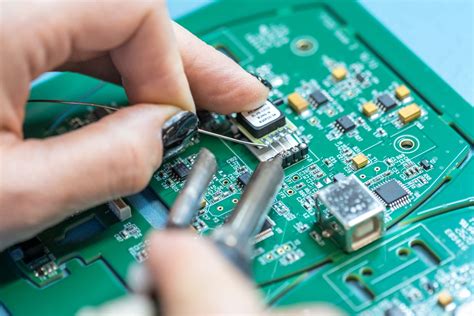
Key Challenges in ITAR PCB Assembly
In the realm of electronics manufacturing, ITAR PCB assembly presents a unique set of challenges that require careful navigation to ensure compliance and quality. ITAR, or the International Traffic in Arms Regulations, governs the export and import of defense-related articles and services, including printed circuit boards (PCBs) used in military applications. As such, companies involved in ITAR PCB assembly must adhere to stringent regulations to protect national security interests. One of the primary challenges in this domain is maintaining compliance with ITAR requirements, which necessitates a thorough understanding of the regulations and meticulous attention to detail.
To begin with, ITAR compliance demands that companies restrict access to sensitive information and technology to U.S.
persons unless authorized by the Department of State. This requirement poses a significant challenge in the globalized electronics industry, where supply chains often span multiple countries. Companies must implement robust security measures to prevent unauthorized access and ensure that all personnel involved in the assembly process are either U.S. citizens or have the necessary clearances. This can complicate staffing and necessitate additional training and oversight.
Moreover, documentation and record-keeping are critical components of ITAR compliance.
Companies must maintain detailed records of all transactions, communications, and processes related to ITAR-controlled items. This includes tracking the movement of materials and components throughout the supply chain, as well as documenting any changes or modifications made during the assembly process. The complexity of these requirements can be daunting, particularly for smaller companies with limited resources. However, failure to maintain accurate records can result in severe penalties, including fines and loss of export privileges.
In addition to compliance challenges, ITAR PCB assembly also involves technical difficulties.
Military-grade PCBs often require specialized materials and manufacturing processes to meet rigorous performance and reliability standards. For instance, these PCBs may need to withstand extreme temperatures, vibrations, and other harsh conditions encountered in military environments. Consequently, manufacturers must invest in advanced equipment and technology to produce high-quality PCBs that meet these demanding specifications. This can lead to increased production costs and longer lead times, which must be carefully managed to meet project deadlines and budget constraints.
Furthermore, the rapid pace of technological advancement in the electronics industry adds another layer of complexity to ITAR PCB assembly.
As new materials and manufacturing techniques emerge, companies must continuously update their processes and equipment to remain competitive. This requires ongoing investment in research and development, as well as collaboration with suppliers and customers to ensure that the latest innovations are effectively integrated into the assembly process. Balancing the need for innovation with the stringent requirements of ITAR compliance can be a delicate task, requiring strategic planning and foresight.
In conclusion, ITAR PCB assembly presents a multifaceted set of challenges that encompass regulatory compliance, technical requirements, and the need for continuous innovation. Companies operating in this space must navigate a complex landscape of regulations and standards while maintaining the highest levels of quality and security. By investing in robust compliance programs, advanced manufacturing technologies, and ongoing research and development, companies can successfully overcome these challenges and contribute to the defense sector’s critical mission of safeguarding national security.
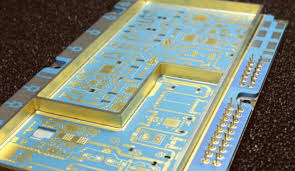
Best Practices for ITAR-Certified PCB Manufacturers
In the realm of electronics manufacturing, ITAR-certified PCB assembly plays a crucial role in ensuring that sensitive defense-related technologies are produced in compliance with stringent regulatory standards. The International Traffic in Arms Regulations (ITAR) governs the export and import of defense-related articles and services, and compliance is mandatory for manufacturers involved in the production of printed circuit boards (PCBs) for military applications. To maintain ITAR certification, manufacturers must adhere to a set of best practices that ensure both the security and quality of their products.
First and foremost, ITAR-certified PCB manufacturers must establish a robust compliance program.
This involves appointing a dedicated compliance officer responsible for overseeing all ITAR-related activities and ensuring that all employees are adequately trained in ITAR regulations. Regular training sessions and updates are essential, as they help employees stay informed about any changes in regulations and reinforce the importance of compliance. Furthermore, manufacturers should implement strict access controls to safeguard sensitive information. This includes limiting access to ITAR-controlled data to authorized personnel only and employing advanced cybersecurity measures to protect against data breaches.
In addition to compliance and security measures, maintaining high-quality standards is paramount for ITAR-certified PCB manufacturers.
This begins with the selection of reliable suppliers who can provide materials and components that meet the necessary specifications. Manufacturers should conduct thorough audits of their suppliers to ensure they adhere to ITAR requirements and maintain consistent quality. Moreover, implementing rigorous quality control processes throughout the production cycle is essential. This includes regular inspections and testing of PCBs to identify and rectify any defects before they reach the end user.
Another critical aspect of ITAR-certified PCB assembly is documentation and record-keeping.
Manufacturers must maintain detailed records of all ITAR-related transactions, including the transfer of technical data and the movement of physical goods. These records should be readily accessible for audits and inspections by regulatory authorities. Accurate documentation not only ensures compliance but also facilitates traceability, which is vital in the event of any issues or recalls.
Furthermore, effective communication and collaboration with clients are vital for ITAR-certified PCB manufacturers.
Understanding the specific requirements and expectations of clients in the defense sector is crucial for delivering products that meet their needs. Regular communication helps in addressing any concerns or changes in project specifications, thereby ensuring that the final product aligns with the client’s objectives. Additionally, manufacturers should be proactive in providing clients with updates on the progress of their projects and any potential challenges that may arise.
Finally, continuous improvement is a hallmark of successful ITAR-certified PCB manufacturers.
By regularly reviewing and refining their processes, manufacturers can enhance efficiency, reduce costs, and improve product quality. This can be achieved through the adoption of new technologies, such as automation and advanced testing equipment, which can streamline production and minimize errors. Moreover, seeking feedback from clients and employees can provide valuable insights into areas for improvement and innovation.
In conclusion, ITAR-certified PCB assembly requires a comprehensive approach that encompasses compliance, quality assurance, documentation, communication, and continuous improvement. By adhering to these best practices, manufacturers can ensure that they not only meet regulatory requirements but also deliver high-quality products that meet the demanding standards of the defense industry. Through diligent adherence to these principles, ITAR-certified PCB manufacturers can maintain their reputation as reliable partners in the production of critical defense technologies.
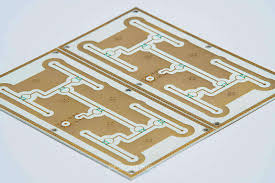
The Role of ITAR in Global PCB Supply Chains
In the intricate world of global supply chains, the role of the International Traffic in Arms Regulations (ITAR) in printed circuit board (PCB) assembly is both pivotal and complex. ITAR, a set of United States government regulations, controls the export and import of defense-related articles and services. Its influence extends to various components, including PCBs, which are integral to numerous defense and aerospace applications. Understanding ITAR’s impact on global PCB supply chains requires a comprehensive examination of its regulatory framework and the challenges it presents to manufacturers and suppliers worldwide.
To begin with, ITAR’s primary objective is to safeguard U.S. national security by ensuring that defense-related technology does not fall into the wrong hands.
This is achieved by controlling the dissemination of technical data and defense articles, including PCBs used in military applications. Consequently, any company involved in the design, manufacture, or distribution of PCBs for defense purposes must comply with ITAR regulations. This compliance is crucial, as violations can result in severe penalties, including fines and loss of export privileges.
Moreover, ITAR compliance necessitates a thorough understanding of the regulations and their implications for PCB assembly.
Companies must implement stringent controls to ensure that sensitive information and technology are not inadvertently shared with unauthorized foreign entities. This involves meticulous documentation, secure data handling, and rigorous employee training. Additionally, manufacturers must verify that their supply chain partners also adhere to ITAR requirements, as non-compliance at any stage can jeopardize the entire operation.
In the context of global supply chains, ITAR presents unique challenges.
The interconnected nature of modern manufacturing means that components are often sourced from multiple countries, each with its own regulatory landscape. Navigating these complexities requires a strategic approach to supply chain management. Companies must carefully select partners who understand and comply with ITAR, while also considering the geopolitical implications of their sourcing decisions. This often involves balancing cost efficiency with regulatory compliance, a task that can be particularly daunting for smaller firms with limited resources.
Furthermore, ITAR’s influence extends beyond compliance, impacting the design and innovation processes within the PCB industry.
Companies must consider ITAR restrictions during the initial stages of product development, ensuring that their designs do not inadvertently trigger regulatory oversight. This can limit the use of certain materials or technologies, potentially stifling innovation. However, it also encourages the development of ITAR-compliant solutions, fostering a culture of creativity and problem-solving within the industry.
Despite these challenges, ITAR also offers opportunities for companies willing to navigate its complexities.
By achieving compliance, firms can position themselves as trusted partners in the defense sector, gaining access to lucrative contracts and long-term business relationships. Additionally, the rigorous standards imposed by ITAR can enhance a company’s reputation for quality and reliability, providing a competitive edge in the global market.
In conclusion, the role of ITAR in global PCB supply chains is multifaceted, encompassing regulatory compliance, supply chain management, and innovation. While it presents significant challenges, it also offers opportunities for growth and differentiation. As the global landscape continues to evolve, companies must remain vigilant and adaptable, ensuring that they not only meet ITAR requirements but also leverage them to their advantage. Through strategic planning and a commitment to compliance, businesses can successfully navigate the complexities of ITAR and thrive in the competitive world of PCB assembly.





